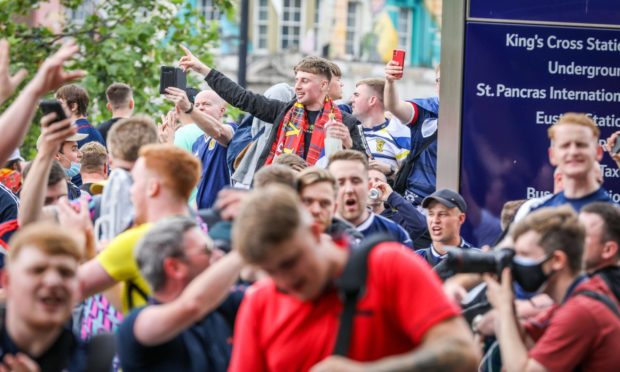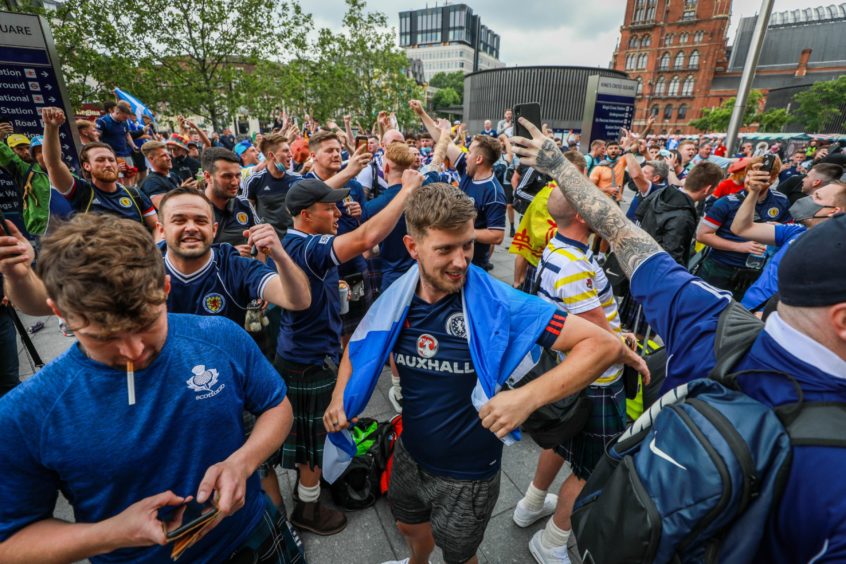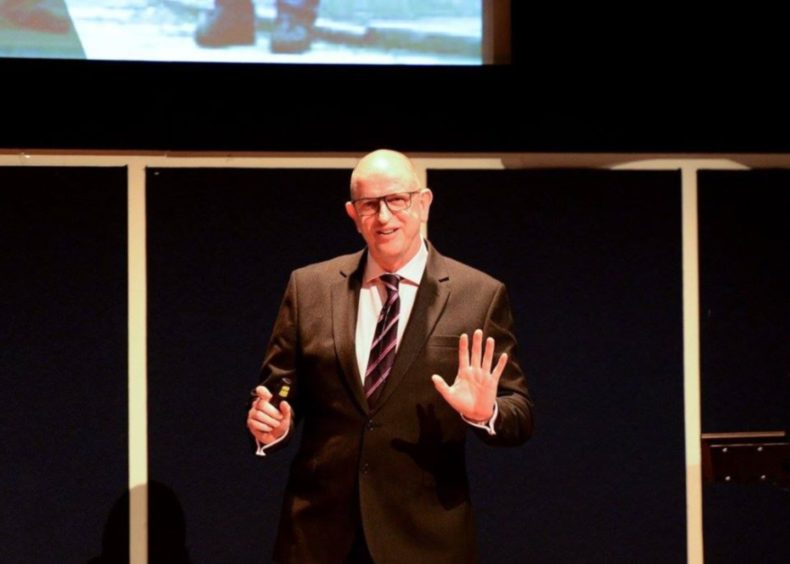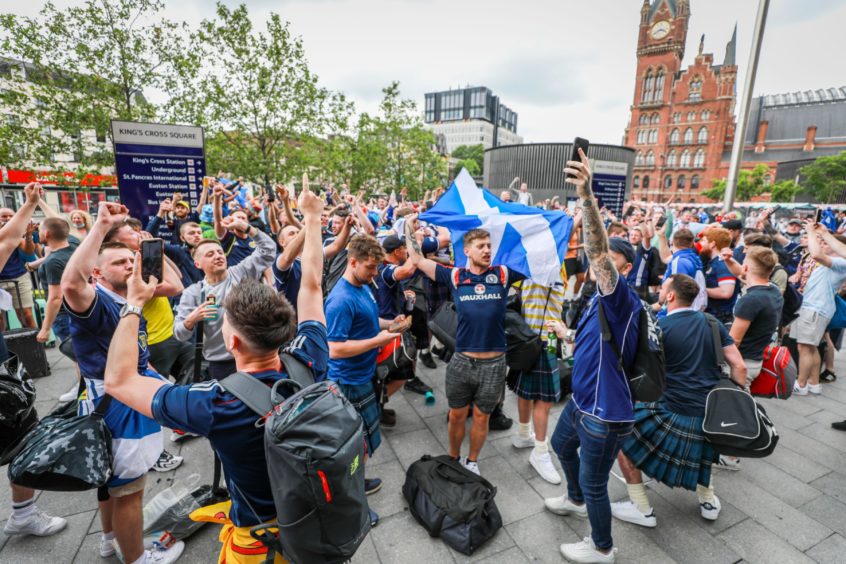A leading expert on policing crowds has hit out at a lack of arrangements for the thousands of Scotland fans who travelled to London for the highly-anticipated Euro 2020 clash with England.
Clifford Stott, professor of social psychology at Keele University and a participant of the Sage group, whose work feeds into the government’s scientific advisory body, said the scenes in central London on Friday were “very predictable”.
Thousands of Tartan Army supporters travelled south to soak up the atmosphere but with just 20,000 allowed into Wembley Stadium, fans were warned not to travel unless they have arranged somewhere safe to watch the match.
Met Police ordered a dispersal order ahead of the clash running until 3pm on Saturday and said it would “prevent the public being caused alarm, harassment and distress”.
Many tickets were booked in advance when Wembley originally allocated Scottish fans more than 18,000 seats but this was decreased to 2,600 because of Covid restrictions.
With just hours to go before kick-off, UK policing minister Kit Malthouse urged Scotland fans who had not made arrangements to go home.
He said: “It’s obviously very unfortunate. I know the Met Police put a dispersal order in yesterday in central London to disperse quite rowdy crowds.
“I hope those fans realise they have an individual duty towards our collective health, they take it seriously, and if they are staying in London – there’s still time for them to get a ticket back to Scotland – that they find a socially distanced way to do it.”
"There's still time for them to get a ticket back to Scotland." 🏴🏴
Policing Minister @kitmalthouse tells me Scottish football fans who've headed down to the capital should "stay away from central London" ahead of the England v Scotland #EURO2020 match tonight: pic.twitter.com/3di17sVuBI
— Georgie Prodromou (@GeorgieProRadio) June 18, 2021
The mayor of London, Sadiq Khan, sports minister Nigel Huddleston and the Scottish Government have also reminded fans they should only travel if they have a ticket for the match or fan zone or a safe place to watch the game.
However, Prof Stott said officials had known “for weeks, if not months, that this was going to happen” and it is a shame supporters were “left with a situation where their gathering hasn’t been facilitated in ways that maximise public safety.”
He believes much of the issue comes down to officials asking, rather than telling, supporters to stay away and a lack of focus on ways to make the situation safer when it became clear many fans would travel.
“Whether we wanted that to happen or not, it is the reality that needs to be dealt with and given that reality is there, we need to think in ways that maximise public safety,” he told BBC’s Good Morning Scotland programme.
“I think it’s a shame, therefore, that they haven’t been provided with a fan zone in a large open space so they could gather together in ways that are relatively safer than the ways in which they are currently gathering together.”
The traditional meeting spot of Trafalgar Square was not available to Scotland fans because it is being used as a socially-distanced, ticketed fan zone for 750 key workers, and screens are not visible without access.
We thought there should have been more foresight, London is the capital city, the main hosting city for the tournament.”
Scottish Football Supporters Association
Supporters could be seen gathering outside King’s Cross train station, dancing and singing to their adopted anthem Yes Sir, I Can Boogie, a 1977 hit by Baccara, from the early afternoon on Friday.
Prof Stott said the decision led to “pockets of Scotland fans” in areas across London and many supporters gathering in hot, densely crowded pubs, adding: “We couldn’t think of a better recipe for transmitting Covid.”
“The perspective in this context of football is one of public order but, actually, in the context of the pandemic, the priority should be to public health,” he said.
“The ambiguity, the difficulty of putting a public health lens into how the police think about the management of crowds in the European Championships is the issue.
“But let’s not forget we are in the midst of a European Championship where London has put itself forward as a major host city.
“It’s going to be hosting quarter-finals, semi-finals and the final.
“It better get used to hosting large crowds of football fans travelling, and if the issue was that it didn’t want to have those fans then there should have been decisions made around the European Championships themselves.”
Surprised and disappointed
Paul Goodwin, co-founder of the Scottish Football Supporters Association, said: “We are surprised and disappointed that there isn’t a fan zone in London.
“We thought there should have been more foresight, London is the capital city, the main hosting city for the tournament.
“It’s not just Scotland-England here, it would have been the perfect test if they did have a fan zone, but what happens if it’s France and England or Germany and England in the final, are people going to be content with what they’ve got?
“However, we are pragmatic, we’re realists, we totally understand as football fans, but also as human beings in the pandemic, of the big picture.”



